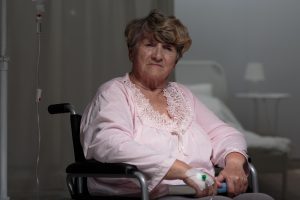
Senior author Dr. Timothy Platts-Mills explained, “These findings indicate that the vast majority of victims of elder abuse pass through the emergency department without the problem being identified. Emergency physicians strive to make sure that for each patient who comes through the door, all serious and life-threatening conditions are identified and addressed. For elder abuse, EDs across the country are falling short.”
Seniors who face abuse are most often seen by emergency persons and not their family physicians, so it is often up to the emergency personnel to detect abuse.
Annually, seniors make up 23 million emergency department visits, meaning, emergency department staff can play a critical role in identifying those abused elderly. Unfortunately, detecting abuse isn’t always easy. Dr. Platts-Mills explained, “It can be very difficult distinguishing whether a bruise is from a fall or physical abuse, or whether poor hygiene is a result of a patient asking to be left alone or the result of overt neglect on the part of a care provider. But those difficulties don’t change the reality that elder abuse is common, takes a tremendous toll on its victims, and is frequently missed.”
The study was published in the Journal of the American Geriatrics Society.